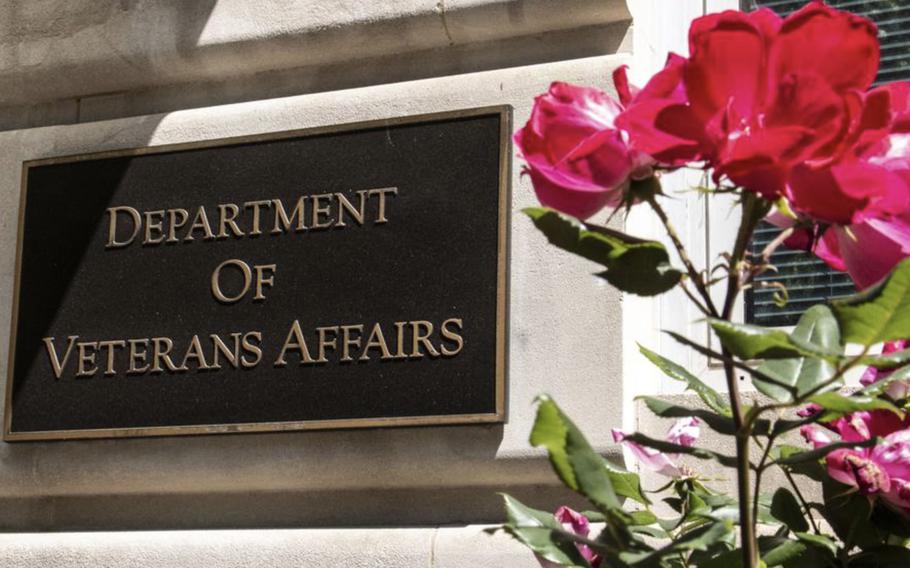
(Stars and Stripes)
I am an Army veteran who served in Vietnam in 1967 and 1968. I’ve been enrolled at the Department of Veterans Affairs health care system, the Veterans Health Administration, since 2015 and worked there for 30 years as an administrator. I’ve had two recent surgeries at the VA Medical Center in Asheville, N.C. Much of my care has stemmed from a cardiac condition and prostate cancer, two service-connected disabilities related to my exposure to Agent Orange in Vietnam. I consistently receive prompt and excellent health care, but don’t take my word for it.
For years, peer-reviewed studies have consistently shown that care in the VHA is equal to or superior to private sector care. In addition to providing peerless care, VHA is the primary educator of health care professionals, with 70% of physicians undergoing training at a VHA facility. VHA is also a research powerhouse, and it serves as a backup to civilian and Department of Defense facilities during national emergencies.
As surveys confirm, the vast majority of veterans want the VHA to be strengthened – even expanded. I’m certainly one of them. All of this is why I’ve become so alarmed by baseless attacks on the VHA over the last decade. First came passage of the 2014 CHOICE Act, followed by the 2018 MISSION Act. These laws created a parallel private sector health care network — known as the Veterans Community Care Program (VCCP) — which is supposed to provide veterans, particularly those who, like me, live in rural areas, with speedier and high-quality care.
That hasn’t happened.
Research shows that private sector care — which, unlike the VA, is profit-driven, not mission-driven — consistently fails veterans. Veterans like me see long delays in the private sector and are administered lower quality care. Even more disturbing, private providers too often recommend unnecessary procedures that may subject us to undue harm. That was the conclusion of a 2023 study published in the Journal of the American Medical Association. It found that veterans with low-risk prostate cancer, like me, are far more likely to receive surgery or radiation than watchful surveillance, the standard of care.
What was sold to us veterans as a simple supplement to VHA care is now threatening its future. VCCP costs have increased dramatically from $14.8 billion in 2018 to more than $28.5 billion last year. Now, over 40% of all VHA patients receive at least some care in the private sector.
VA Secretary Denis McDonough has publicly stated that funds being diverted to private care are not sustainable. The major contractors facilitating this outsourcing, TriWest Healthcare Alliance and Optum, are seeking a $103 billion increase over the remainder of their five-year contract. This is over and above the initial projected $86 billion. (Optum has already been awarded an additional $4 billion for seven months to manage just one of five VCCP regions.) Since the VA has apparently not requested a supplemental appropriation to support these outlays, the funds can only come from the VHA’s existing budget. In an apparent response to these budget strains, VHA recently announced a 10,000-person staffing reduction.
This may sound like an impossible crisis, but solutions exist, and have been expertly articulated to McDonough and many in Congress.
Last year, the VHA commissioned a Red Team Executive panel to investigate the VCCP. The team consisted of six health care leaders, including Kenneth W. Kizer, a former VA undersecretary for Health during the Clinton administration, as well as ex-DOD military health officials and prominent health care system executives, including those with private sector experience. The team’s report was titled “The Urgent Need to Address VHA Community Care Spending and Access Strategies.” It makes a slew of common sense recommendations, including revising unrealistic drive and wait times for referral to private providers, returning veterans to VHA facilities after initial private care consultations and ER visits, and implementing a campaign to advise veterans of the quality of VHA versus VCCP care.
We veterans cannot afford to lose the VA health care system we’ve spent generations fighting for. Vietnam vets like me continue to suffer from the hazards of combat-related injuries, as well as toxic exposures like Agent Orange. Post-9/11 vets have their own signature wounds, like traumatic brain injuries, post-traumatic stress disorder, military sexual trauma, and toxic exposure from burn pits, which is one of the reasons Congress passed the much-needed PACT Act.
If the VA is to honor its sacred promise to its veterans, McDonough needs to immediately begin implementing the Red Team’s recommendations. If he continues to dally, then Congress needs to step in to save our VA so that it can serve current and future generations of veterans.
Bruce Carruthers served in the U.S. Army during the Vietnam War. He is a retired Department of Veterans Affairs VA employee and a member of the Veterans Healthcare Policy Institute.